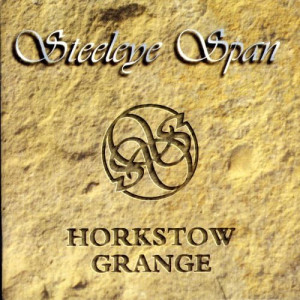 Chuck Lipsig wrote this for Folk Tales.
Chuck Lipsig wrote this for Folk Tales.
It has been almost 30 years, and Steeleye Span has finally recorded Horkstow Grange, the song they took their name from as their title track. And for the first time, Maddy Prior is not with the band. So is it still Steeleye Span? Put it this way: In the summer of ’87, I lived for several months in a wood-paneled room with an old beat up piano in it. Much of my time was spent listening to Steeleye Span, who I had just discovered, and trying to play their arrangements on piano – especially the long ballads like “The Wife of Usher’s Well” and “Sir James the Rose.”
Flash forward to several days ago when I first listened to Horkstow Grange, the strangest thing happened as I was listening to the latest incarnation of Steeleye Span’s version of the classic ballad, “Lord Randall.” I started smelling that old wood-paneled room! Maddy Prior may be gone, but it’s still Steeleye Span.
Which is not to say Gay Woods has turned into a Maddy Prior clone; she has her own voice, much earthier than Prior’s ethereal instrument. Woods gets into the characters she is singing much more than Prior did. In “The Old Turf Fire” and “Erin,” Woods is the Irish wife and on “I Wish That I Never Was Wed,” (a wonderful counterpoint to “The Old Maid in the Garrett” from Time) she goes purposefully off-key to drive the anger of the disgruntled wife home.
However, Steeleye Span has never been just Maddy Prior and now it’s not just Gay Woods. Bob Johnson seems to have taken over the ethereal voice with a whimsical combining of nursery rhymes “The Tricks of London” and a very resigned “Lord Randall.” Peter Knight takes the lead in the high point of the CD: “Bonny Birdy,” a cross between “Matty Groves” and “Lady Isabel and the Elf Knight” that is another in the tradition of Steeleye Span’s excellent adaptations of traditional ballads. Tim Harries’s rendition of “One True Love” (a.k.a. “The Unquiet Grave”) is eerily and effectively discordant. Dave Mattacks, fresh from his departure from Fairport Convention to pursue a freelance career, plays drums in several of the songs.
The instrumental abilities of the group are solid, though few of the pieces give them a chance to show off their abilities. The exception is “Erin,” with Knight’s fiddling featured in forlorn variation of an Irish reel that serves the song quite well.
The only song that fails to live up to Steeleye Span’s normal quality is “Australia,” an experiment with flamenco guitar that just doesn’t work. And “Horkstow Grange”? It’s the barebones of a story, but with four-part harmony, Steeleye Span creates a hymn-like tone for the song that gave them their name.
Through however many changes Steeleye Span has had, they have consistently performed energizing and original versions of English and Celtic folk music. The retirement of Maddy Prior has neither diminished nor greatly altered the group. In Horkstow Grange, Steeleye Span remains vital and vibrant.
(Park Records, 1998)
[Editor’s note: The title track for the album, “Horkstow Grange,” is apt, being not only the name of the earliest trad songs collected by Percy Granger, but it also tells the story of John ‘Steeleye’ Span, a waggoner who ruined his life because of an incident with John Bowlin, a labourer who worked for him.]
